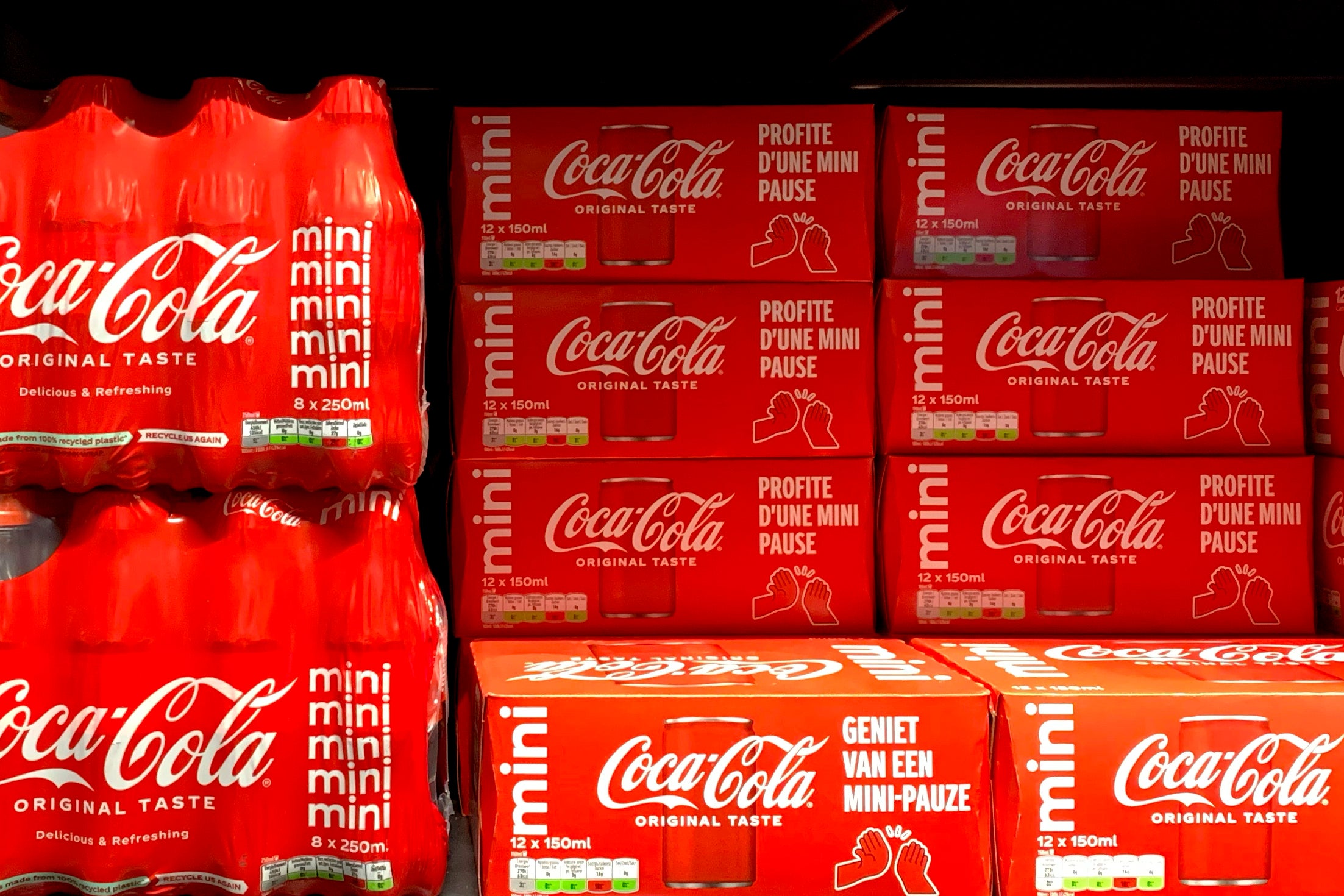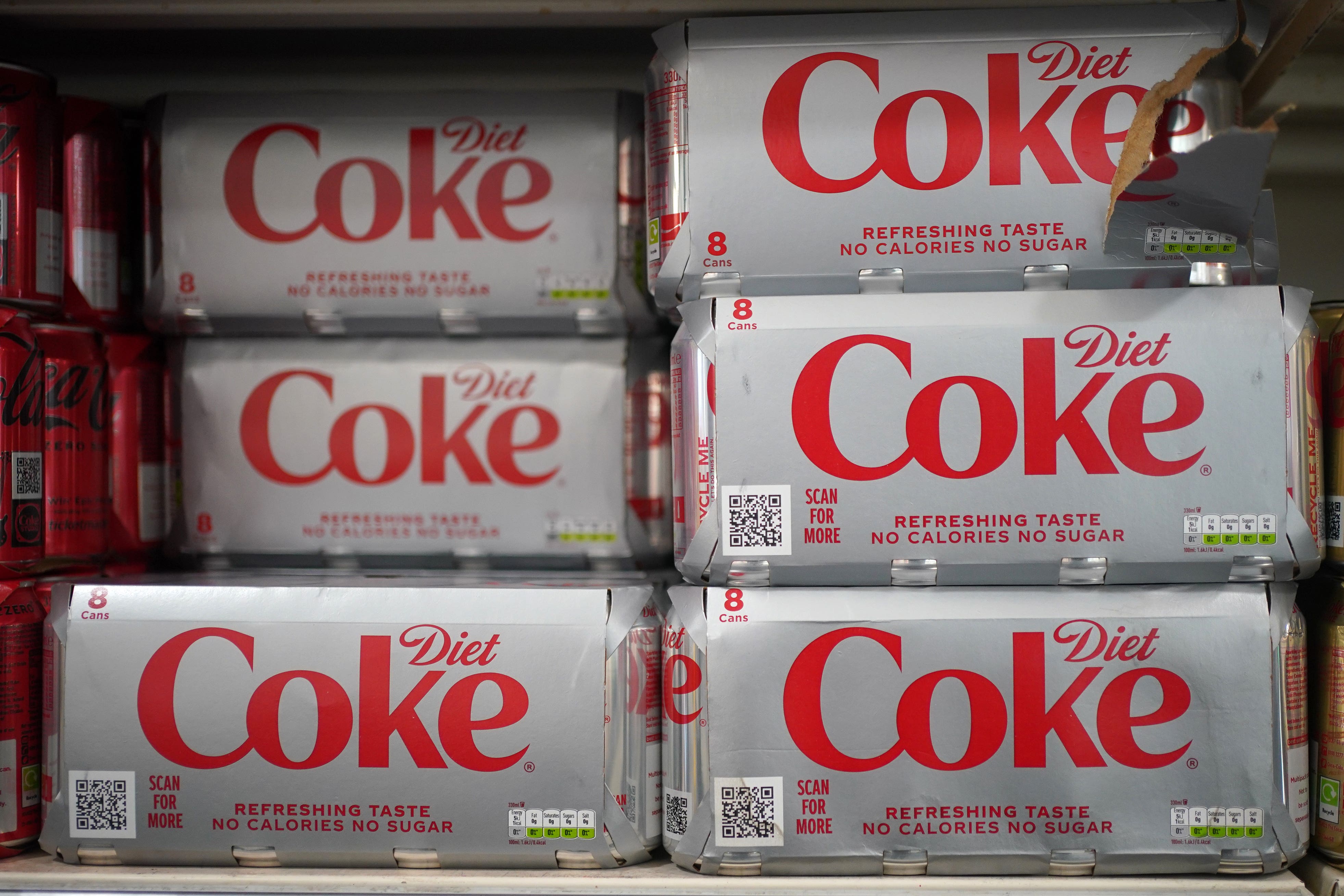‘Unsafe’ Coca-Cola drinks distributed in UK as urgent recall issued
Appletiser, Coca-Cola Original Taste, Coca-Cola Zero Sugar, Diet Coke and Sprite Zero have been pulled shelves

Your support helps us to tell the story
From reproductive rights to climate change to Big Tech, The Independent is on the ground when the story is developing. Whether it's investigating the financials of Elon Musk's pro-Trump PAC or producing our latest documentary, 'The A Word', which shines a light on the American women fighting for reproductive rights, we know how important it is to parse out the facts from the messaging.
At such a critical moment in US history, we need reporters on the ground. Your donation allows us to keep sending journalists to speak to both sides of the story.
The Independent is trusted by Americans across the entire political spectrum. And unlike many other quality news outlets, we choose not to lock Americans out of our reporting and analysis with paywalls. We believe quality journalism should be available to everyone, paid for by those who can afford it.
Your support makes all the difference.There has been a “limited distribution to the UK” of Coca-Cola soft drinks containing higher levels of a chemical called chlorate, the Food Standards Agency has said.
The statement comes after the Coca-Cola Europacific Partners, the company’s bottling partner, said batches of Appletiser, Coca-Cola Original Taste, Coca-Cola Zero Sugar, Diet Coke and Sprite Zero were pulled from the shelves in Belgium, Luxembourg and the Netherlands after testing revealed “elevated levels” of the chemical.
Batches of Coca Cola, Fanta, Sprite, Minute Maid and Fuze Tea were among the products recalled in Belgium, Luxembourg and the Netherlands, the company said on Tuesday. The recall concerns drinks with production codes 328 GE to 338 GE.
On Tuesday Tina Potter, of the FSA, said the Coca-Cola Europacific Partners international product withdrawal relates to a “small number of their soft drinks” which contained higher levels of the chemical.
She said: “We can confirm that there has been limited distribution to the UK of the affected products.
“We are working with relevant authorities and the business directly to assess if there is a food safety concern for UK consumers.
“If we identify any unsafe food, we’ll take action to ensure it is removed and alert consumers.”
Chlorate is a by-product of the breakdown of chlorine-based sanitisers and chlorine chemicals, which are frequently used to sterilise water.
It can cause iodine deficiency in people and is regulated with legal maximum residue limits for a range of foods, including fresh produce, according to Food Standards Scotland.
The chemical has been linked to potentially serious health problems, notably among children by interfering with the proper functioning of the thyroid gland.

In a statement, Coca-Cola Europacific Partners previously said the recall had been focused on Belgium, Luxembourg and the Netherlands, where the majority of affected products had been withdrawn from sale.
It said it had “flagged” this issue to Britain’s food safety authorities and was in communication with them.
It added: “Independent expert analysis concluded that the likelihood of any associated risk of feeling temporarily unwell from consuming these products is very low.
“This has affected a very small number of imported cans of Appletiser, Coca-Cola Original Taste, Coca-Cola Zero Sugar, Diet Coke and Sprite Zero with production codes from 328 GE to 338 GE, which can be found on the base of the can.”
In 2015, the European Food Safety Authority found that levels of chlorate in drinking water and foods were too high and could result in serious health effects, especially among infants and children.
These included impaired functioning of the thyroid due to inhibition of iodine uptake.